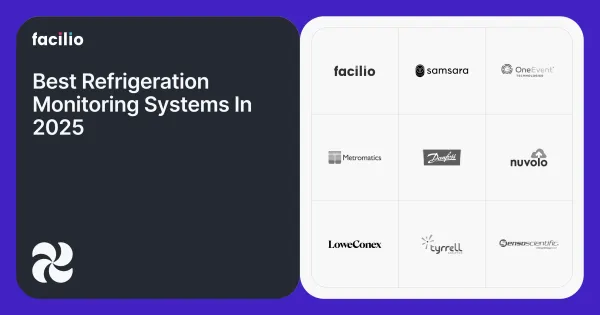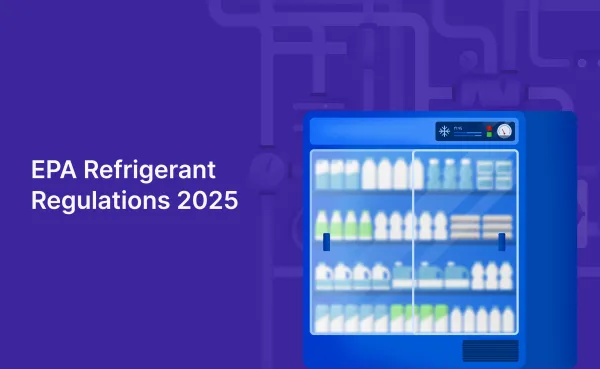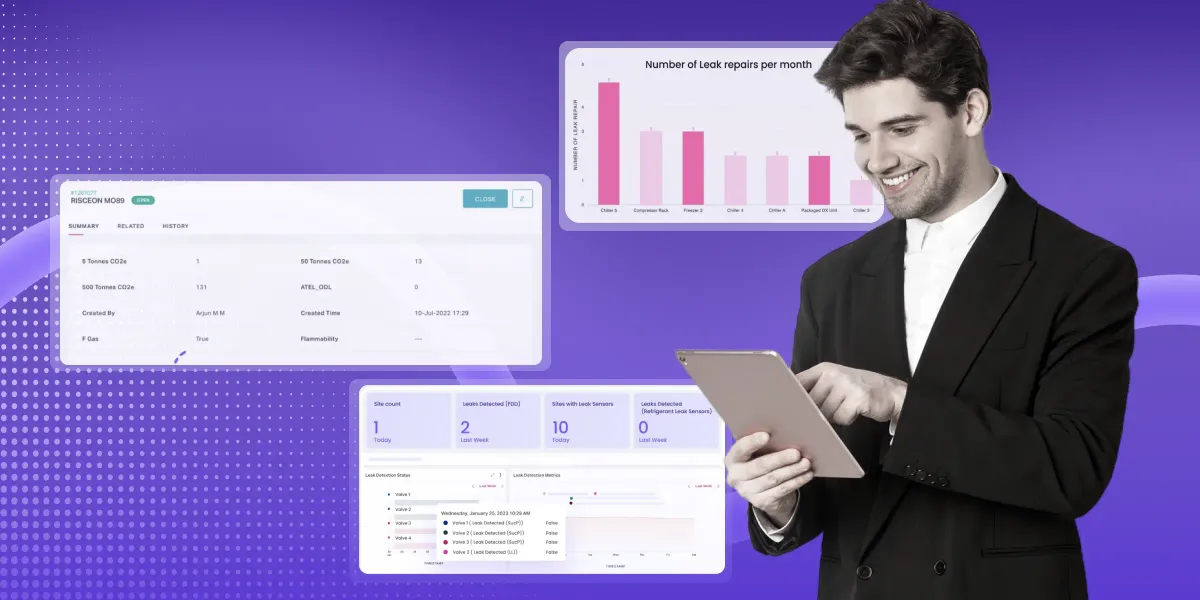
Commercial Refrigeration Maintenance Tips & Free Checklist
Imagine this: it’s the weekend before the 4th of July, and your grocery store is packed with holiday shoppers. Suddenly, you notice the temperature in your refrigeration units climbing. Before you know it, your frozen foods are thawing, and the aroma of fresh produce has turned foul-smelling.
The culprit: A malfunctioning refrigeration unit that hadn’t been properly maintained.
The result?
Thousands of dollars in lost inventory, a hit to your revenue, and a blow to your reputation.
Many businesses understand the importance of reliable refrigeration for preserving product quality. In addition to the immediate financial impact, there’s also the challenge of staying compliant with refrigeration regulations and food safety standards.
Sometimes, retail facility managers lack a structured approach or even the resources to ensure regular commercial refrigeration maintenance.
Unexpected equipment failures and refrigerant compliance issues are expensive, stressful, and can damage your reputation. By implementing a commercial refrigeration preventive maintenance plan, you can ensure your equipment operates at peak efficiency, minimize the risk of costly breakdowns, and extend the lifespan of your units.
To support you, we've created a comprehensive and free checklist to help you stay on top of your commercial refrigeration maintenance tasks. Let’s first dive into what commercial refrigeration maintenance is.
What is commercial refrigeration maintenance?
Let’s define commercial refrigeration maintenance by building on our previous example.
Imagine you're a retail facility manager overseeing a high-volume grocery store. One morning, you discover a puddle beneath one of the refrigeration units. Panic sets in as you realize the unit isn't cooling properly.
Now, imagine if you had a routine maintenance schedule in place. The previous month, a technician from your facility management service provider (FMSP) conducted a thorough inspection. They cleaned the condenser coils, checked the refrigerant levels, and ensured all components were in good working order.
They also documented their findings and scheduled the next check-up. This proactive approach identified minor issues before they escalated, preventing the puddle and the crisis you’d face otherwise.
Commercial refrigeration maintenance isn’t just about simply going through the motions. It’s about safeguarding your operations against unexpected breakdowns, keeping your equipment running at peak performance and extending its lifespan.
The peace of mind that comes from knowing your refrigeration units are reliable and compliant with industry standards allows you to focus on what you do best running a successful retail business.
To put it succinctly, commercial refrigeration maintenance involves regular cleaning, inspection, and servicing of refrigeration equipment. This is done to ensure optimal performance, energy efficiency, and compliance.
Read More: Navigating the Shifting Landscape of Retail FM
What is the preventive maintenance of commercial refrigeration equipment?
Preventive maintenance of commercial refrigeration equipment is taking proactive steps to ensure that your units run efficiently. It’s done to prevent costly repairs and unexpected breakdowns. A simple checklist could include:
- Regular inspections: Schedule routine check-ups to catch and fix minor issues early. Inspect door seals, refrigerant levels, fans, and motors to ensure they’re working properly.
- Cleaning coils: Regularly clean condenser and evaporator coils to maintain efficient airflow and cooling performance. Dirty coils make the system work harder, consuming more energy.
- Monitoring temperatures: Regularly check and calibrate thermostat settings to ensure optimal temperatures, prevent spoilage, and ensure food safety.
- Lubricating moving parts: Keep motors, fans, and other moving parts well-lubricated to reduce friction and extend the unit’s life.
- Replacing filters: Regularly change air and water filters to maintain clean airflow and prevent contamination.
- Checking electrical connections: Inspect and secure electrical connections to prevent malfunctions.
- Documenting and scheduling: Keep detailed records of maintenance activities and schedule preventive maintenance to stay on track.
What are the challenges in maintaining refrigeration?
Importance of commercial refrigeration maintenance
Maintaining commercial refrigeration is critical for several reasons, especially in business environments:
- Operational efficiency: Well-maintained refrigeration systems operate more efficiently, reducing energy consumption and operational costs. Regular upkeep prevents breakdowns and extends the lifespan of equipment, minimizing downtime and maintenance expenses.
- Compliance: Regular maintenance helps meet regulatory requirements, such as EPA guidelines on refrigerant management and food safety standards, thereby avoiding fines and legal issues.
- Customer satisfaction: Fresh, high-quality products and reliable refrigeration build customer satisfaction, loyalty, and trust.
- Long-term cost savings: A proactive approach to refrigeration monitoring includes investing in regular maintenance and servicing to prevent costly repairs or premature replacement of refrigeration units.
- Environmental responsibility: Properly managed refrigeration systems reduce greenhouse gas emissions through efficient operation and responsible handling of refrigerants.
Best practices for commercial refrigeration maintenance
Using IoT-driven software for remote monitoring
Implement IoT-driven software to monitor your refrigeration systems remotely. This technology provides real-time data on equipment performance and health, enabling proactive maintenance and quick issue identification. By leveraging remote monitoring, you can reduce downtime, optimize operational efficiency and extend the lifespan of your refrigeration units.
Refrigerant compliance and leak detection
Recent changes to EPA Section 608 tighten refrigerant leak detection requirements for appliances containing hydrofluorocarbon (HFC) refrigerants, including chronically leaking ones. This update lowers the compliance threshold to 15 pounds, meaning more supermarket refrigeration systems will be classified as "chronically leaky" and require leak reports.
Prompt detection of refrigerant leaks is crucial to prevent costly equipment breakdowns, energy losses, and potential fines of up to $37,500 per day for non-compliance with EPA refrigerant management and reporting regulations.
Adopt condition-based maintenance strategies to detect refrigerant leaks proactively. Utilize sensors and advanced analytics to monitor system conditions and identify potential leaks before they become serious issues. This proactive approach helps minimize energy wastage and prevent equipment failures.
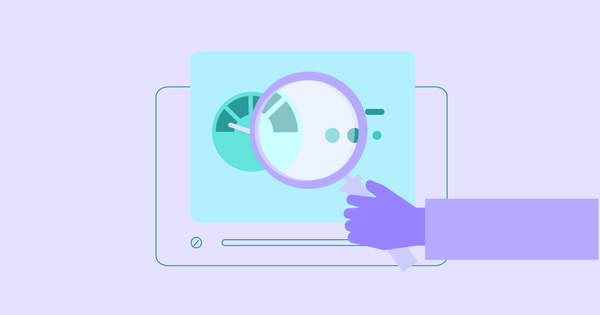
Automate workflows, inspections and audits
Automate your workflows, inspections and audits to streamline commercial refrigerator maintenance processes. Automation ensures consistency, accuracy and efficiency in routine tasks by reducing human error and allowing your team to focus on more critical issues. Automated systems can schedule and track maintenance activities, ensuring all necessary inspections and audits are conducted on time.
Focus on energy efficiency
Focus on energy efficiency to reduce operational costs and environmental impact. Optimize your commercial refrigeration systems with advanced compressors, improved insulation materials, and energy-saving automation. Regularly audit your systems to identify and rectify energy inefficiencies and consider investing in energy-efficient refrigeration equipment.
Promote sustainability initiatives
Promote sustainability by adopting eco-friendly refrigeration practices and technologies. Use natural refrigerants with lower global warming potential, implement energy conservation measures and opt for equipment designed with sustainable materials. By prioritizing sustainability, you reduce your environmental footprint and align your operations with regulatory standards and consumer expectations.
Enhanced communication and training
Facilitate clear communication and training for your maintenance teams. Ensure they know the latest technologies, regulations and best practices in refrigeration maintenance to maintain high operational standards.
Invest in scalable solutions
Choose scalable refrigeration solutions that can grow with your business. Modular systems and cloud-based management tools allow you to expand and adapt your refrigeration infrastructure as your needs evolve.
Commercial refrigeration maintenance checklist
Here is a comprehensive checklist for your quarterly commercial refrigeration maintenance:
1. Clean interior and exterior
- Clean the refrigerator's interior surfaces, including shelves, bins, and walls, to remove spills, debris, and mold.
- Wipe down exterior surfaces and handles.
2. Inspect refrigerant levels
- Check refrigerant levels regularly and ensure they’re within manufacturer-recommended specifications.
- Look for signs of leaks or inadequate levels.
3. Clean condenser coils
- Clean condenser coils to remove dust, dirt, and debris that can reduce efficiency.
- Use a soft brush to gently clean the coils without damaging them.
4. Check door seals
- Inspect door seals (gaskets) for cracks, tears, or gaps.
- Replace seals if damaged to maintain proper insulation and prevent energy loss.
5. Monitor temperature settings
- Check and calibrate temperature settings to ensure they’re accurate and within safe operating ranges.
- Adjust settings as needed based on seasonal changes or operational requirements.
6. Inspect evaporator fans
- Check evaporator fans for proper operation and signs of wear.
- Clean fan blades and ensure they are free from obstructions.
7. Clean drain lines
- Inspect and clean drain lines to ensure they’re clear of obstructions and allow for proper condensation drainage.
8. Test defrost cycle
- Test and verify the defrost cycle operation to ensure it functions correctly and prevents ice buildup on evaporator coils.
9. Inspect electrical components
- Inspect electrical connections, controls, and wiring for damage, corrosion, or loose connections.
- Ensure all electrical components are functioning properly and safely.
10. Document maintenance activities
- Keep a log to track inspections, repairs, and maintenance activities.
- Record any issues found and actions taken for future reference and compliance purposes.
Certain commercial refrigeration preventive maintenance tasks can be done daily/weekly and monthly.
- Daily/weekly: Clean all interior and exterior surfaces, keep an eye on defrost cycles, and check temperature settings.
- Monthly: Clean condenser coils, inspect door seals, check drain lines, replace air filters, and inspect all tubing and compressor fins.
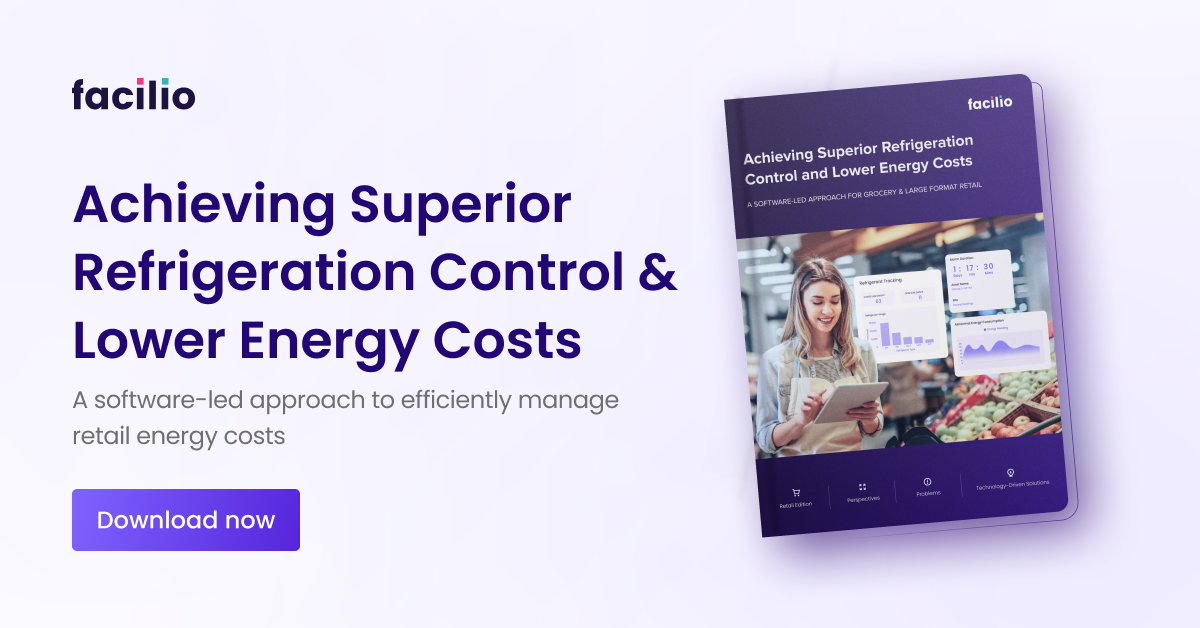
Transform your commercial refrigeration maintenance with Facilio
Facilio's connected refrigeration leverages powerful IoT technology to uncover real-time data insights and cloud-based control, empowering retailers to optimize their refrigeration systems. This data-driven approach can lead to significant cost savings and improved operational efficiency.

Independent studies have shown reductions in refrigeration energy consumption by up to 15%, with a payback period of under six months. Facilio can also help ensure your facilities are compliant with ever-evolving regulations.
Low-code approach to commercial refrigeration
Facility managers need solutions that offer flexibility and quick adaptability, but traditional software solutions often lack the agility to incorporate changes swiftly, taking anywhere from 6 to 12 months for modifications.
Facilio’s low-code, no-code approach revolutionizes this process, enabling changes within just 1 to 2 months.
Seamless Integration
Integrating new technologies is often a painstaking and time-consuming task. However, Facilio stands out with its ability to integrate seamlessly using open APIs without extensive coding.
Closed-loop ecosystem
Facilio offers an integrated ecosystem encompassing maintenance, monitoring, energy management and more. This closed-loop system ensures faster issue resolution and more reliable operations, enhancing overall productivity and performance.
IoT-led and future-proof
Designed with IoT at its core, Facilio future-proofs your operations, ensuring you stay ahead with the latest technological advancements. Our simple, easy-to-use platform ensures that managing your commercial refrigeration systems is efficient and user-friendly.
By choosing Facilio, facility and retail store managers can transform their commercial refrigeration maintenance into a streamlined, efficient and scalable process.
Ready to experience the future of commercial refrigeration maintenance? Book a demo today and discover how Facilio can revolutionize your operations.
FAQs about commercial refrigeration
How often should you service a commercial refrigerator?
A commercial refrigerator should be comprehensively serviced at least twice a year. Regular servicing helps identify potential issues before they become major problems, extending the lifespan of the equipment. However, some units might require more frequent checks depending on usage and the environment.
What is commercial refrigeration preventive maintenance?
Preventive maintenance for commercial refrigeration equipment includes regular cleaning of the interior and exterior, inspecting and cleaning condenser and evaporator coils, checking and replacing air filters, and inspecting door gaskets for any damage.
It also ensures the drain pans and tubes are clear of sludge and debris to prevent blockages. Preventive maintenance helps maintain optimal performance and energy efficiency and extends the lifespan of commercial refrigeration equipment.
More from Facilio














